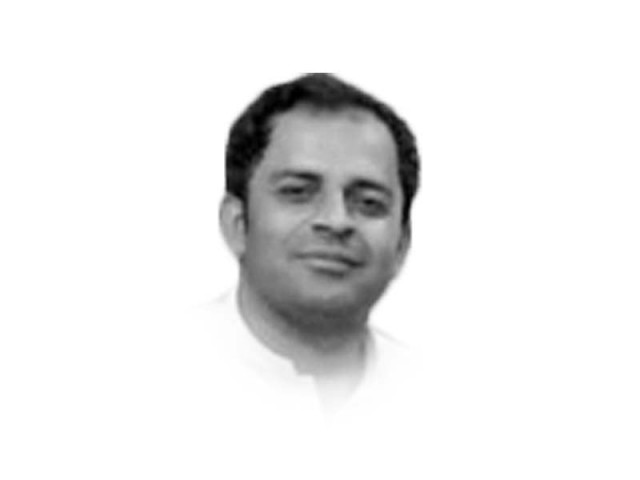Shambolic democracy
Democracy in Pakistan is without democratic cultures, values, principles, or any other constituent feature

Although Pakistan had inherited a democratic system from the colonial rulers of the past, it has been unable to develop a genuine democratic culture despite over seven decades of freedom. The seed of democracy needs time to deepen its roots and deliver fruits, but Pakistan never allowed for that to happen. This is because our democracy has paradoxically revolved around different forms of authoritarianism including plutocracy, kleptocracy, stratocracy and dynastic politics.
Democracy in Pakistan is without democratic cultures, values, principles, or any other constituent feature. It is in the tip and all else is otherwise the iceberg. Perhaps one of the greatest injustices to this exalted political system is that no stakeholder questions the health of our democracy. More ironically, we aren’t ready to acknowledge its ailments. Either we don’t know what democracy is or we are content with not knowing it at all. But why is this so?
A sick democracy favours the powerful more than a healthy one. In a real democracy, the public is a real stakeholder, while in a lame democracy, the same public is considered as an asset to be exploited and taken advantage of. Elections, which are considered the soul of democracy, have become a lucrative business and those coming into power are not chosen really by the people. It is the money, the influence and the expertise used for exploitation that empower the elite. They pay people to vote and threaten them with dire consequences when they refuse. Power is the primary objective. Making it to the power corridors also warrants financial investments, and not everyone can afford this. Once in power, these investments are repaid not only monetarily but also through hard power in the name of social superiority.
How many people from underprivileged backgrounds have risen to power through proper elections or on merit? It is an open secret that such people who dare to challenge the established electable are meted out with repercussions so detrimental that none from their descendants would ever dare to do the same. Almost every constituency in the country is under the tight grip of influential power brokers. This is the very reason why mainstream political parties are loaded with such people. The ultimate triumph in these so-called democratic elections is henceforth decided by the number of electable a party holds. Don’t get me wrong, there is a public voice in Pakistan’s political arena but that is only reserved for cries of injustice. Anyone living in the illusion that democracy in Pakistan reigns supreme should reflect on the human rights situation in the country. Just imagine where the country stands with regard to political polarisation, institutional harmony, press freedom, educational literacy and enlightenment, political sagacity and ad hoc policymaking. One might wonder how a democracy can deepen its root in a society where majority of the populace is unaware of the importance of democratic values. It is a shame that most citizens remain unmindful of and insensitive towards the rights bestowed on them as citizens and as human beings.
Fragile, destitute, bruised and bleeding is the democracy of Pakistan. The sooner it is remedied, the better. The only cure for a lame democracy is ‘more democracy’. This includes, but is not limited to, institutional harmony and respect for its bounds; rule of the law and its supremacy; political maturity and synchronisation; transparency and accountability; and political consciousness.
Published in The Express Tribune, May 15th, 2022.
Like Opinion & Editorial on Facebook, follow @ETOpEd on Twitter to receive all updates on all our daily pieces.
















COMMENTS
Comments are moderated and generally will be posted if they are on-topic and not abusive.
For more information, please see our Comments FAQ